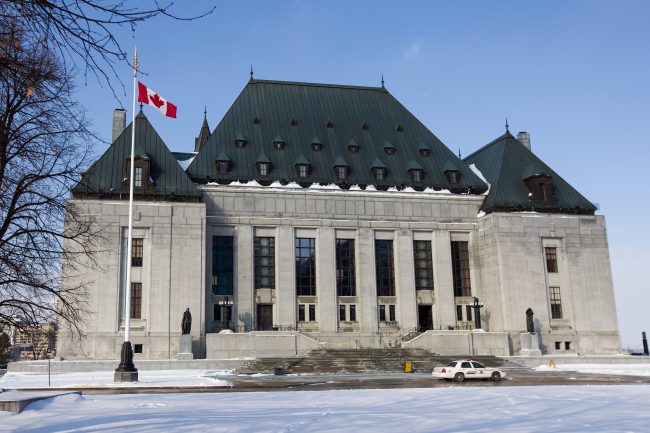The Canadian government may have to settle with the Williams Lake Indian Band for not correcting breaches made by the Colony of B.C. to protect indigenous land from settlement before the province joined Confederation.

In a split ruling issued Friday morning, the Supreme Court of Canada upheld a finding by the Specific Claims Tribunal in 2014 that stated the Canadian government had a responsibility to correct failures on the part of the Colony of B.C. from adhering to its legal obligation to prevent settlers from building on indigenous lands.
READ MORE: B.C. First Nation wins land claim case
The Federal Court of Appeal dismissed the tribunal’s finding in 2016, so the Williams Lake Indian Band appealed the claim to the Supreme Court, asking for the original ruling of the tribunal to be upheld.
Two questions were at the core of the case: whether legal obligations on colonies prior to Confederation apply to the Canadian government after Confederation, and whether there was a fiduciary duty on the Canadian government after Confederation to correct failures of the colonies to uphold the laws in place at the time.
READ MORE: Supreme Court ruling on Williams Lake Indian Band
The government had argued that legal obligations in place prior to Confederation on the imperial Crown — the Crown with responsibilities over the colonies — did not transfer directly onto the Crown as it stands now in terms of the modern Canadian government.
The Colony of British Columbia was created in 1858 and was ruled by a governor assigned by the monarch.
When the colony joined Confederation in 1871, the Canadian government assumed responsibility for the creation of First Nations reserves under a policy that would be “as liberal as the colony’s.”
That specific wording played in role in determining that the Canadian government by extension had a duty to act to stop and reverse settlements on the lands of the Williams Lake Indian Band just as the Colony of British Columbia had been legally required to do before Confederation.
The ruling does not mean that the land in question — downtown Williams Lake — will be transferred back to the Williams Lake Indian Band.
However, it does set the stage for the negotiation of compensation to be provided by the federal government to the band.
- ‘Shock and disbelief’ after Manitoba school trustee’s Indigenous comments
- ‘Super lice’ are becoming more resistant to chemical shampoos. What to use instead
- Is home ownership only for the rich now? 80% say yes in new poll
- Invasive strep: ‘Don’t wait’ to seek care, N.S. woman warns on long road to recovery




Comments